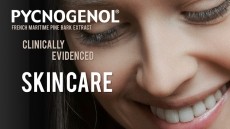Beauty has a role to play in ‘female empowerment’ for the over-40s: Avon
![Women aged 40+ say they have more confidence and better self-esteem than when they were younger, and beauty needs to find its place in this, according to Avon [Getty Images]](https://www.cosmeticsdesign-europe.com/var/wrbm_gb_food_pharma/storage/images/_aliases/wrbm_large/publications/cosmetics/cosmeticsdesign-europe.com/article/2022/11/02/avon-power-of-ageing-campaign-highlights-female-empowerment-for-women-aged-40/15907655-1-eng-GB/Avon-Power-of-Ageing-campaign-highlights-female-empowerment-for-women-aged-40.jpg)
Earlier this year, Natura-owned Avon released findings from its The Power of Ageing report that indicated 72% of women worldwide were now focused on looking healthy rather than young after the COVID-19 pandemic. Findings from the Avon-commissioned Censuswide survey of 7,000 women across the globe also showed 67% and 64% said their confidence and self-esteem was improving with age. For women in their forties, these findings were even more pronounced, with 66% in this age bracket stating they felt more in control of their lives and 55% feeling more comfortable in their own skin versus when they were younger.
‘Age does not define you; you define you’
Speaking to CosmeticsDesign-Europe, Laura Cummins, global VP of marketing for skin care and personal care at Avon, said these were important findings that indicated exactly how beauty should be talking to these women.
“It’s really important to talk in their language,” Cummins said. “And Avon has never really done a lot of talking about anti-ageing and talking about turning back the clock; we’ve never really been in that camp. And what this research really helps us to do is fine-tune the conversation.”
Avon’s head of skin care and innovation last year went as far to say that the term anti-ageing wouldn’t event exist in two to three years and Cummins said that certainly aligned with consumer sentiment. Female empowerment and confidence, for example, was clearly more engaging for this cohort of women, she said, as was a focus on appreciating and embracing life more generally.
“When we say things like ‘age does not define you; you define you’, it’s very empowering.”
A history of beauty empowerment
Asked if beauty had a role to play in female empowerment, Cummins said: “Personally, I think it does. I’ve been in beauty 25 years and that’s one thing I’ve learned, because beauty is actually part of history. If you go back to looking at ancient Egyptian art, women are decorated, so, beauty has been empowering women all the way through history.”
And Avon, as a beauty brand, had long been engaged in campaigns championing women and female issues, such as breast cancer and domestic violence, she said – all “really important” conversations that helped create a sense of female community. The company’s core value and belief, she said, was that a better world for women was a better world for all.
And this mission, Cummins said, had to be woven into every part of Avon’s business, from early product development phases through to Avon reps engaging with consumers on-the-ground.
But beyond female empowerment opportunities, she said there was clearly plenty more to be done in tackling ageism in beauty – with 40% of women claiming this remained a problem.
“So, ageism is really about the way in which, partly, the industry talks to consumers but also the role of women in society,” she said.
A collective push against beauty ageism
And this issue had to be addressed by a collective, wider effort, she said. “I think, ultimately, it has to be a collaboration between different brands. When I say collaboration, it can come in different dimensions. The Body Shop is also part of the Natura Group, and I know my colleagues in The Body Shop are having similar conversations about how we talk about ageing.”
Tackling ageism, she said, could be addressed in many ways, from altering use of language when marketing to women aged 40+ to improving product formulas to better meet needs. Importantly, beauty brands had to be “authentic and inspirational and age-positive”, she said, aiming to build positivity and empowerment.
And it was this issue, Cummins said, that had prompted Avon to launch its recent Power of Ageing podcast series, spotlighting five “inspirational” women from across the globe to investigate “female power over 40”, in partnership with magazine major Marie Claire. The goal of the series, she said, was to unearth what ageism looked like in beauty today and find out what that meant to different women across the globe. If, ultimately, it sparked change, even better, she said.
Looking forward, innovating according to fast-evolving consumer and societal attitudes around ageing would be key in ensuring beauty was “democratic and accessible to everyone”.
![Aēsop is today present in 29 markets, has 395 stores and increased its gross sales between 2012 and 2022 by €465m (US$509m) [Image: Aesop Facebook]](https://www.cosmeticsdesign-europe.com/var/wrbm_gb_food_pharma/storage/images/_aliases/wrbm_medium/publications/cosmetics/cosmeticsdesign-europe.com/article/2023/04/04/l-oreal-to-acquire-natura-co-owned-aesop-for-us-2.5bn-and-grow-brand-globally/16305295-1-eng-GB/L-Oreal-to-acquire-Natura-Co-owned-Aesop-for-US-2.5bn-and-grow-brand-globally.jpg)
![Continuing to develop 'products for everyone' in beauty, irrespective of social class, ethnicity or ability, but also make industry accessible for all as a career, will be key in 2023 [Getty Images]](https://www.cosmeticsdesign-europe.com/var/wrbm_gb_food_pharma/storage/images/_aliases/wrbm_medium/publications/cosmetics/cosmeticsdesign-europe.com/article/2023/01/16/cosmetic-toiletry-and-perfumery-association-ctpa-says-inclusivity-to-remain-key-for-beauty-in-2023/16086911-1-eng-GB/Cosmetic-Toiletry-and-Perfumery-Association-CTPA-says-inclusivity-to-remain-key-for-beauty-in-2023.jpg)
![The sensation of skin tightness is widely known but the mechanism behind it is still not fully understood [Getty Images]](https://www.cosmeticsdesign-europe.com/var/wrbm_gb_food_pharma/storage/images/_aliases/wrbm_medium/publications/cosmetics/cosmeticsdesign-europe.com/article/2022/11/07/stanford-university-and-l-oreal-researching-skin-tightness-and-neural-response/15919988-1-eng-GB/Stanford-University-and-L-Oreal-researching-skin-tightness-and-neural-response.jpg)
![Beauty products targeting menopausal women have to be based on sound science and not just marketing chatter [Getty Images]](https://www.cosmeticsdesign-europe.com/var/wrbm_gb_food_pharma/storage/images/_aliases/wrbm_medium/publications/cosmetics/cosmeticsdesign-europe.com/headlines/market-trends/menopause-beauty-and-wellbeing-needs-open-source-science-r-d-say-experts/15897479-1-eng-GB/Menopause-beauty-and-wellbeing-needs-open-source-science-R-D-say-experts.jpg)






![Chinese study highlights mental health challenges in atopic dermatitis, emphasising holistic patient care. [Getty Images]](https://www.cosmeticsdesign-europe.com/var/wrbm_gb_food_pharma/storage/images/_aliases/wrbm_tiny/publications/cosmetics/cosmeticsdesign-asia.com/headlines/formulation-science/chinese-research-linking-atopic-dermatitis-to-mental-health-underscores-need-for-holistic-care/17040623-1-eng-GB/Chinese-research-linking-atopic-dermatitis-to-mental-health-underscores-need-for-holistic-care.jpg)








